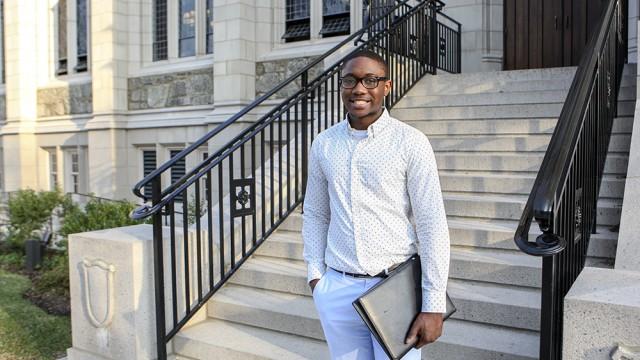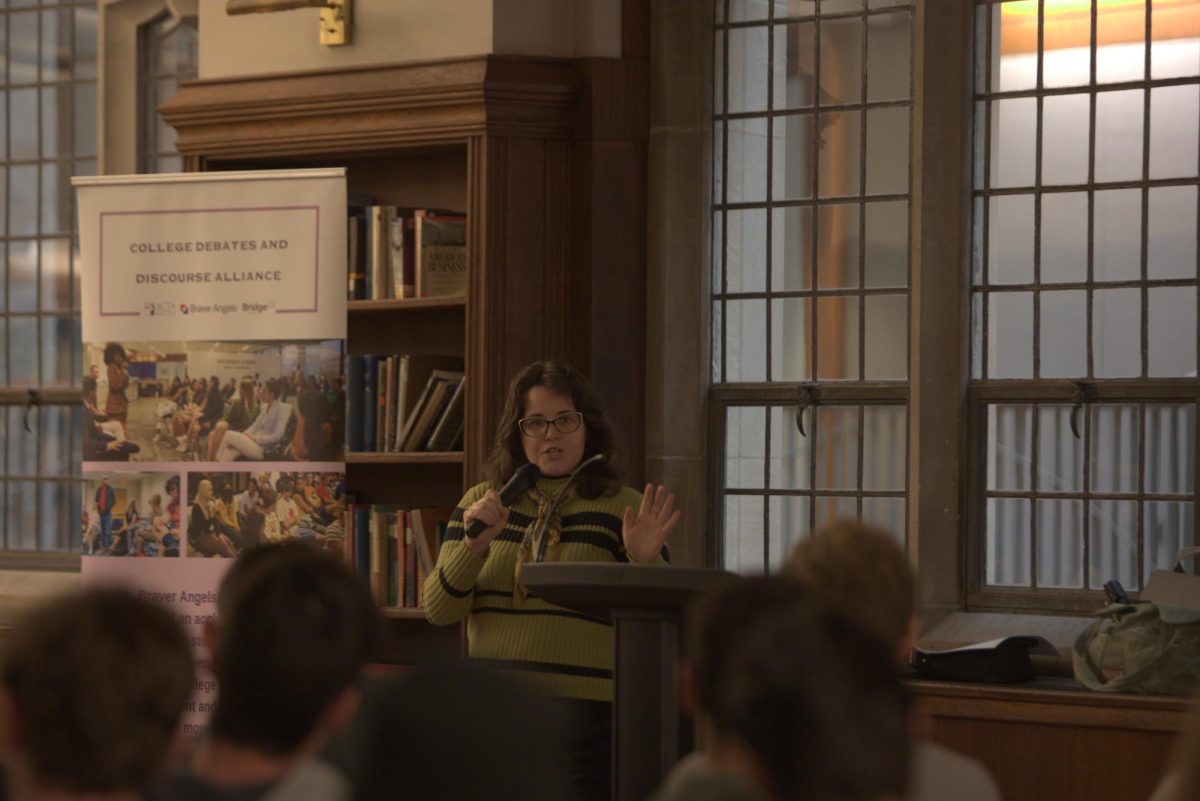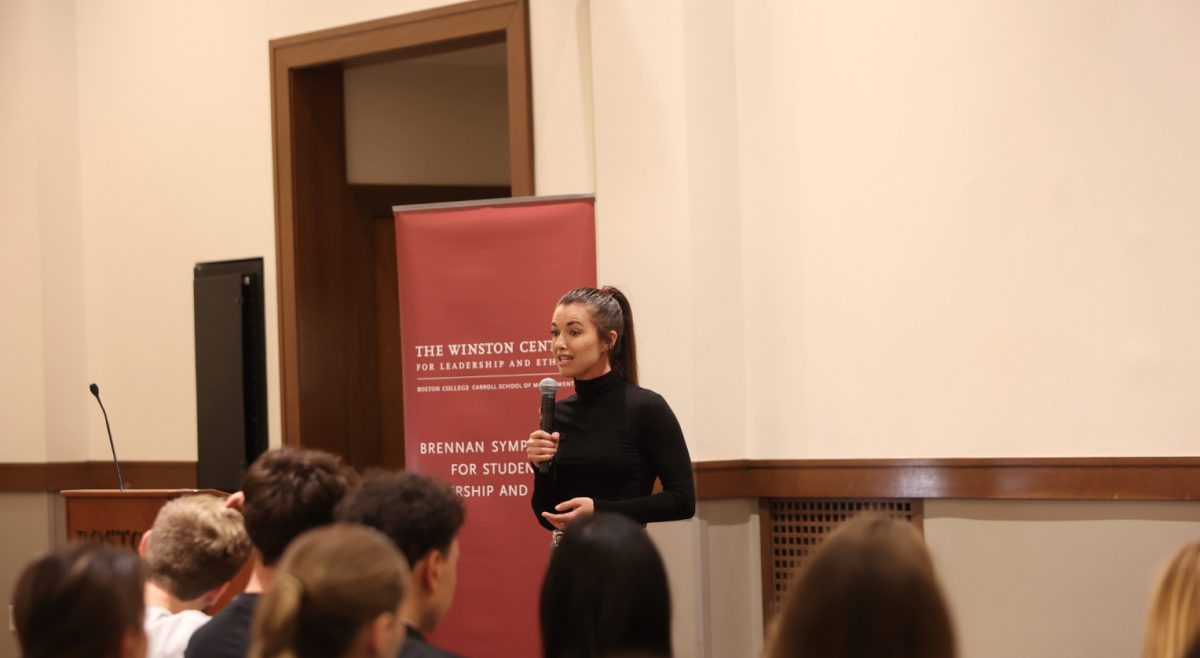For every 10,000 inhabitants of sub-Saharan Africa, there are only two doctors, leading to drastically overcrowded hospitals with many rural Africans having little to no access to health care resources. Additionally, Africa bears 25 percent of the global disease burden, but its inhabitants have access to only three percent of the world’s health care workers, according to the World Health Organization.
Loic Assobmo, A&S ’15, is attempting to address the poor health care system in rural Africa with a SMS-based platform that will connect rural Africans to health care services that are otherwise inaccessible. Working with a team that includes Dr. Edwin Choy of Massachusetts General Hospital, students at Harvard Medical School, a startup at Massachusetts Institute of Technology (MIT), and a student at Meltwater Entrepreneurial School of Technology in Ghana, Assobmo hopes to launch a pilot program in Tetegu, Ghana, as soon as they raise the necessary funding.
Assobmo participated in the social entrepreneurship category of the BC Venture Competition in April 2014, winning first place and $2,500 which he used to refine the app he is hoping to pilot in Ghana. Although there has been a rapid increase in mobile penetration in Africa over the past 10 years, the market for smartphones in rural Africa was much smaller that Assobmo anticipated.
“The one assumption I made, which was false, was that they would have smartphones, so we had to go back and develop a feature phone solution,” Assobmo said.
Assobmo discovered a tech-startup at MIT who had developed a mobile platform that would allow him to integrate much of his original idea and interface into a text messaging service. To purchase the MIT students’ platform, as well as get the necessary licenses and contracts with African telecommunication companies, Assobmo plans to raise $10,000 through his live Medstartr campaign, a goal he’s currently working toward.
“All the pieces are there, we just need the seed funding to make this product available to the market,” Assobmo said.
Assobmo isn’t planning to focus on cities with hospitals and inhabitants with ready access to medical resources, despite the fact that these hospitals are overcrowded, with lines out the doors of many from morning until evening.
“We’re trying to target the remote rural areas,” Assobmo said. “These are the areas where there aren’t any hospitals, there aren’t any health care workers, and people don’t have access to the internet, so they can’t get resources on symptoms, or how to take care of their loved ones who are sick.”
This focus on the rural locations comes from his own childhood experiences in the remote village of Dscheng in Cameroon. When he was six, his mother had a stroke, a medical condition that no one in the village could identify or attempt to cure. It took two days to raise enough money to get to a hospital, which was so crowded and inefficient, that Assobmo and his family had to come to the United States to receive adequate treatment.
The app has two parts, designed to work with users on both preventative and triage levels. The preventative feature sends its users text messages containing content structured with advice on how to avoid infectious diseases. The advice is customized to certain demographics of the population, based on analysis and trends of people’s activities.

“If we know that on Mondays in December, and we know our average user is going to a farm, the text messages will be customized so that they can continue participating in those activities, but be safer and healthier while doing it,” Assobmo said.
The triage system will allow users to communicate via SMS to describe symptoms and the program would then be able to diagnose possible diseases and then instruct users how to proceed with care until they are able to receive professional treatment.
“We want to empower these people so that while they are waiting to see a doctor, they at least get to start thinking about ‘what might my family member be experiencing, what should I stay away from so that their illness doesn’t get worse, what can I start giving them so that they can start feeling better,’” Assobmo said.
Assobmo showed his pilot program to doctors in Africa over the summer, and received very good feedback. Many doctors were worried that this program might encourage the tendency of Africans—especially those in rural areas—to self-medicate. The doctors were wary that these people might take their diagnoses and self-medicate with the wrong medicine, and then only go to a doctor when their illness gets too severe.
But Assobmo said that the program wouldn’t be prescribing medication to patients, it would only help them understand what was wrong and give them advice on the actions they should take before ultimately going to a doctor.
At the moment, Assobmo is focusing on bridging the gap between when rural Africans get sick and when they are able to get to the doctor. In the future, however, he envisions that he and his team will have a far greater impact on health care in Africa. In the near future, Assobmo wants to use his app to track disease outbreaks in real time, linking reported outbreaks to detailed demographics, allowing health care workers to quickly and efficiently treat infected patients, prevent a spread of a disease, and best develop a cure.
“I talk a lot about the end users and how we’re going to empower the end users by giving them resources they don’t have, but I think the potential is bigger than that, and I think we have the potential to shift the way health care works,” Assobmo said.
Featured Image by Emily Fahey / Heights Editor



















